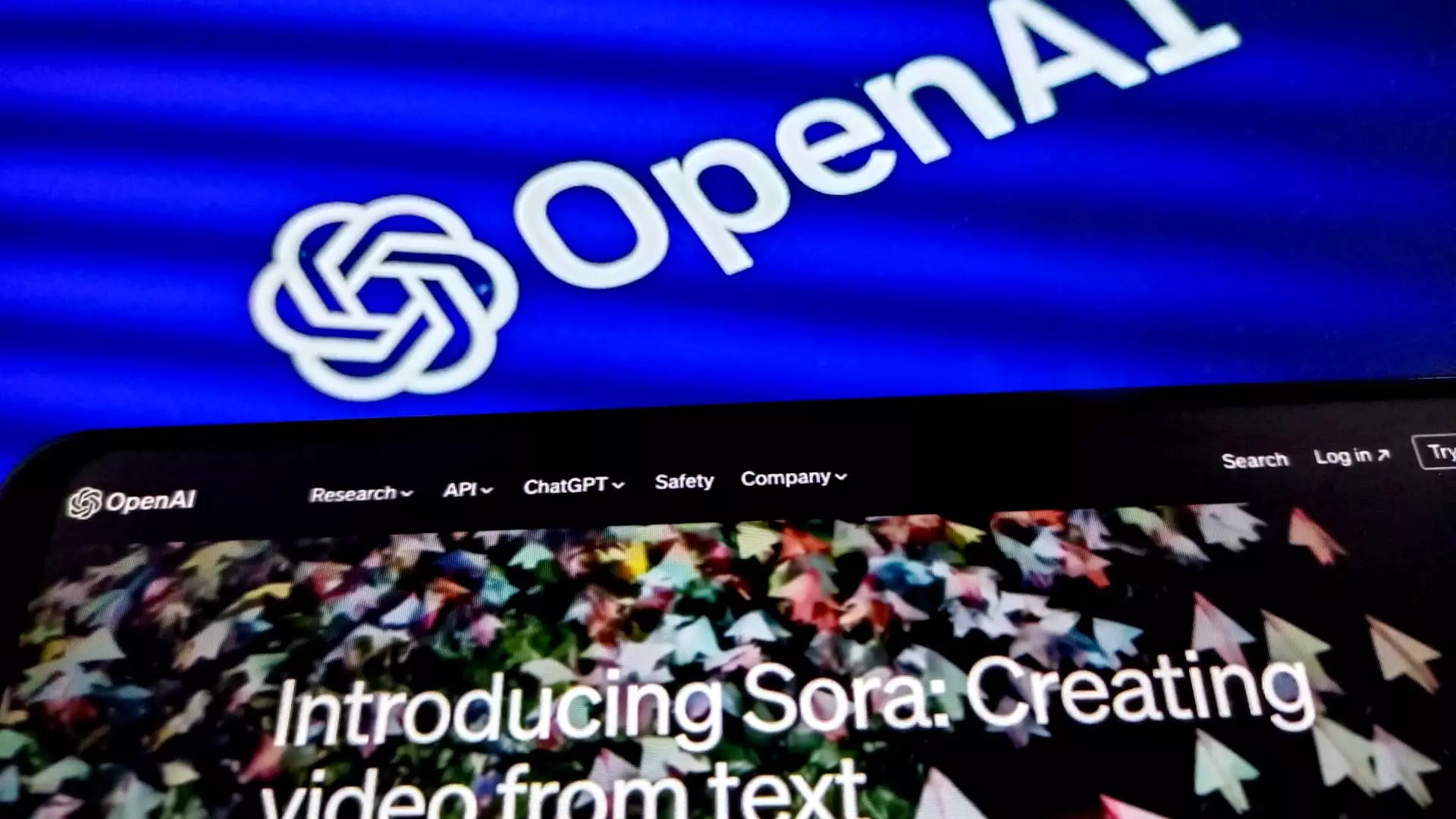In the rapidly evolving landscape of artificial intelligence, OpenAI has consistently positioned itself as a frontrunner, garnering a remarkable valuation and significant investor interest. However, recent changes in leadership have raised eyebrows and concerns among stakeholders about the company’s trajectory. As OpenAI’s Chief Financial Officer, Sarah Friar, strives to reassure investors amidst the departure of several key executives, the company stands at a critical juncture, poised to embark on a substantial funding round that could define its future direction.
The departure of Mira Murati, OpenAI’s Chief Technology Officer, has sparked discussions regarding the stability of the organization. Murati, who has been with OpenAI for six and a half years, played a pivotal role during her tenure, including a brief stint as interim CEO last year. Her exit, alongside the departure of other notable executives like Bob McGrew and Barret Zoph, raises legitimate questions about the continuity of leadership and vision within OpenAI.
Sarah Friar sought to mitigate these concerns in a recent communication with investors. She emphasized that changes in leadership, while challenging, are not insurmountable hurdles. Her message resonated with a commitment to transparency, reiterating that despite these transitions, OpenAI possesses a “talented leadership bench.” This assertion suggests that while the company faces immediate challenges, it also harbors the potential for innovation and effective governance.
Adding a layer of optimism to the situation, Friar confirmed that OpenAI is on the verge of finalizing a significant funding round, projected to reach $6.5 billion. This investment, spearheaded by Thrive Capital, is poised to boost OpenAI’s valuation to approximately $150 billion. The oversubscription of the funding round indicates strong market confidence, highlighting that, despite executive changes, investor appetite for OpenAI remains robust.
In her communication, Friar detailed plans for extensive engagement with investors, showcasing key leaders from both product and research teams. This proactive approach underscores OpenAI’s dedication to maintaining investor relations and ensuring that stakeholders feel connected to the company’s ongoing journey. Such transparency is essential in fostering trust, especially in turbulent times.
With departures of founding members like John Schulman and Greg Brockman, OpenAI’s landscape is indeed shifting. However, Friar’s perspectives on leadership continuity emphasize that the organization is not merely defined by its founders but by the collective talent and vision of its current team. Mark Chen stepping into the senior vice president role for research exemplifies this transition. The hiring of leaders from prominent tech backgrounds, including Kevin Weil from Meta, suggests a strategic effort to infuse fresh perspectives and maintain momentum in innovation.
Moreover, OpenAI’s partnerships – notably with tech giants such as Microsoft and Apple – serve as a testament to its market relevance and operational capabilities. These collaborations could further fortify OpenAI’s position and facilitate its mission of democratizing AI access.
The recent all-hands meeting led by Sam Altman brings additional dimensions to the narrative surrounding OpenAI. Altman’s denial of rumors regarding unmerited equity stakes, combined with his acknowledgment of investor concerns about equity distribution, indicates an effort to align organizational goals with investor interests. The assurance that both he and Friar are attentive to investor sentiment is crucial in retaining confidence during this period of transition.
Altman’s role as a co-founder and a guiding force within the company has been pivotal for OpenAI’s identity, and his transparency about equity aligns with the ideals of accountability that are essential for fostering a thriving startup ecosystem.
As OpenAI prepares for its upcoming funding round and navigates the complexities of recent executive departures, it stands at a crossroads filled with both challenges and opportunities. By emphasizing talent continuity, engaging stakeholders thoughtfully, and maintaining a strong focus on innovation, OpenAI can leverage its current situation to not only solidify its market position but also lead the AI sector into new frontiers. Thus, with an eye toward the future and a commitment to its foundational goals, OpenAI remains a company to watch closely in the coming years.

